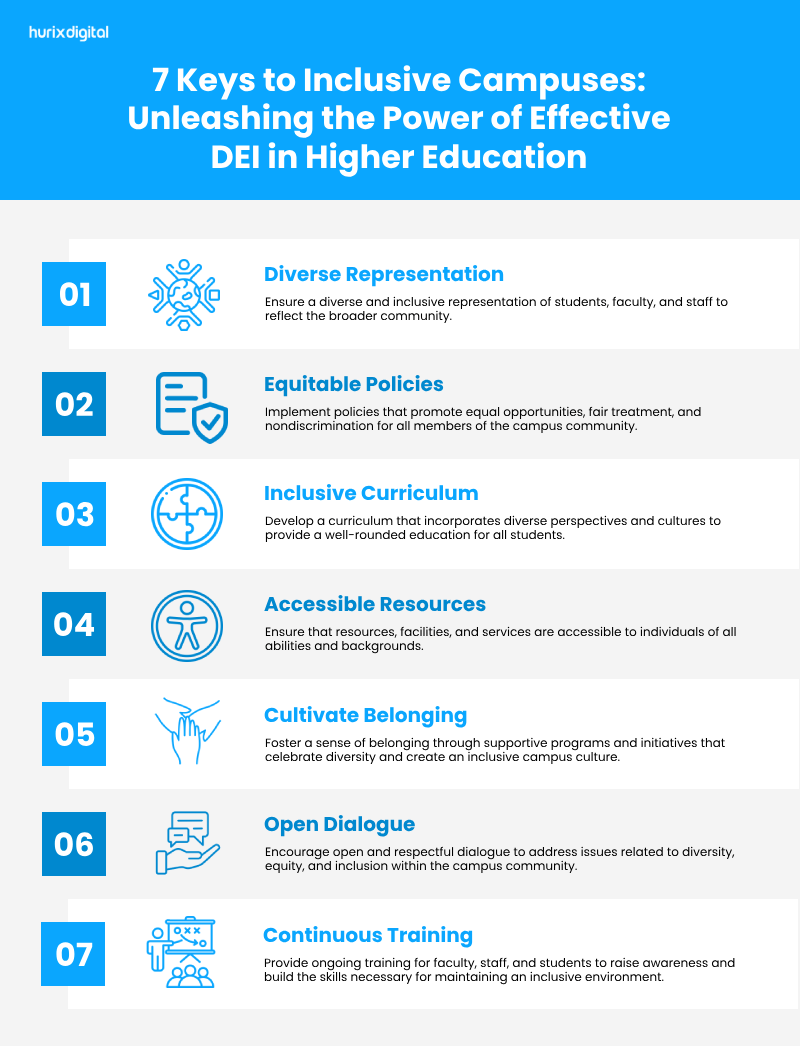In the realm of higher education, fostering diversity, equity, and inclusion (DEI) is not just a goal but a necessity. Creating inclusive campuses goes beyond meeting regulatory requirements; it’s about unlocking the potential of every student and building a harmonious learning environment. Here are seven keys to achieving inclusive campuses and harnessing the power of effective DEI in higher education.
Transform your campus with inclusive practices. Partner with Hurix Digital for comprehensive DEI solutions. Contact us today to embark on a journey toward a more inclusive and empowering higher education environment.

Importance of DEI in Higher Education
The significance of Diversity, Equity, and Inclusion (DEI) in higher education is crucial. A well-implemented DEI strategy fosters an environment where everyone feels valued and respected, enhancing academic performance and personal growth.
Diverse Representation in Higher Education
Diverse representation among students, faculty, and staff enriches the educational experience. Research shows diverse teams outperform homogeneous ones, fostering innovation and creativity. For example, McKinsey & Company found that companies with high gender diversity were 21% more likely to have above-average profitability.
Equitable Policies and Practices
Equitable policies ensure all campus members have access to opportunities. Institutions should regularly assess policies to remove biases and barriers. The National Center for Education Statistics reports that equitable policies can address challenges faced by underrepresented groups, improving retention and success rates.
Inclusive Curriculum Design
Integrating diverse perspectives into curricula broadens students’ horizons and prepares them for a global workforce. The Journal of Higher Education found that inclusive curricula enhance critical thinking skills and cultural competence.
Accessibility and Resource Availability
Accessibility is key to inclusivity. Universities must ensure facilities and resources are available to all, including those with disabilities, by providing assistive technologies and ensuring physical spaces are navigable for everyone.
Fostering a Sense of Belonging
A welcoming atmosphere is vital for student satisfaction and retention. Programs promoting inclusivity and celebrating diverse cultures help students feel a sense of belonging, leading to active engagement in their educational journeys.
Encouraging Open Dialogue and Continuous Training
Open dialogue on diversity issues enhances understanding and inclusivity. Continuous training for campus members raises DEI awareness, sustaining an inclusive campus culture.
Conclusion
Effective DEI strategies are essential for thriving academic communities. By focusing on diverse representation, equitable policies, inclusive curricula, and fostering belonging, institutions prepare students for success in an interconnected world.




